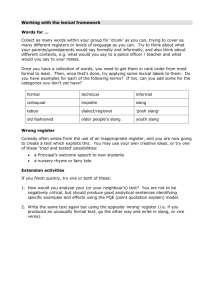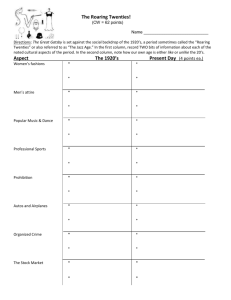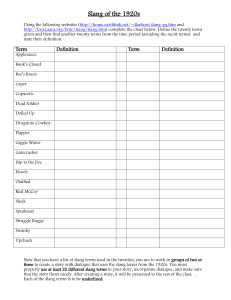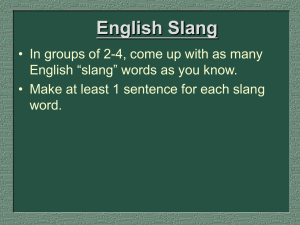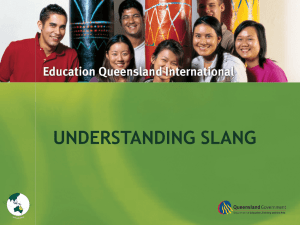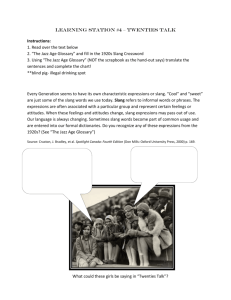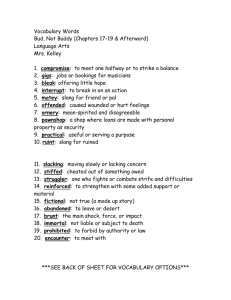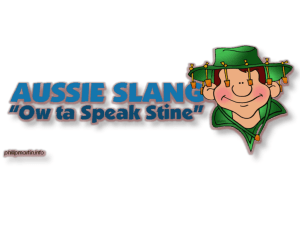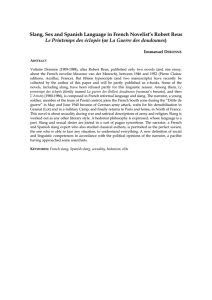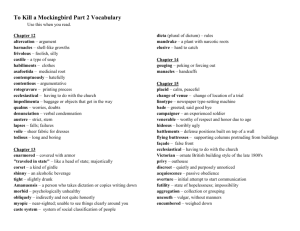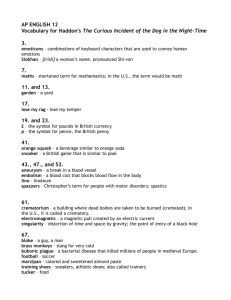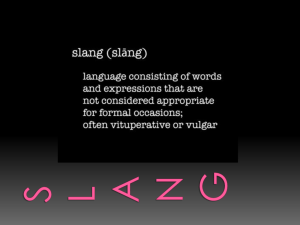Language Change Exercise 4: Slang
advertisement
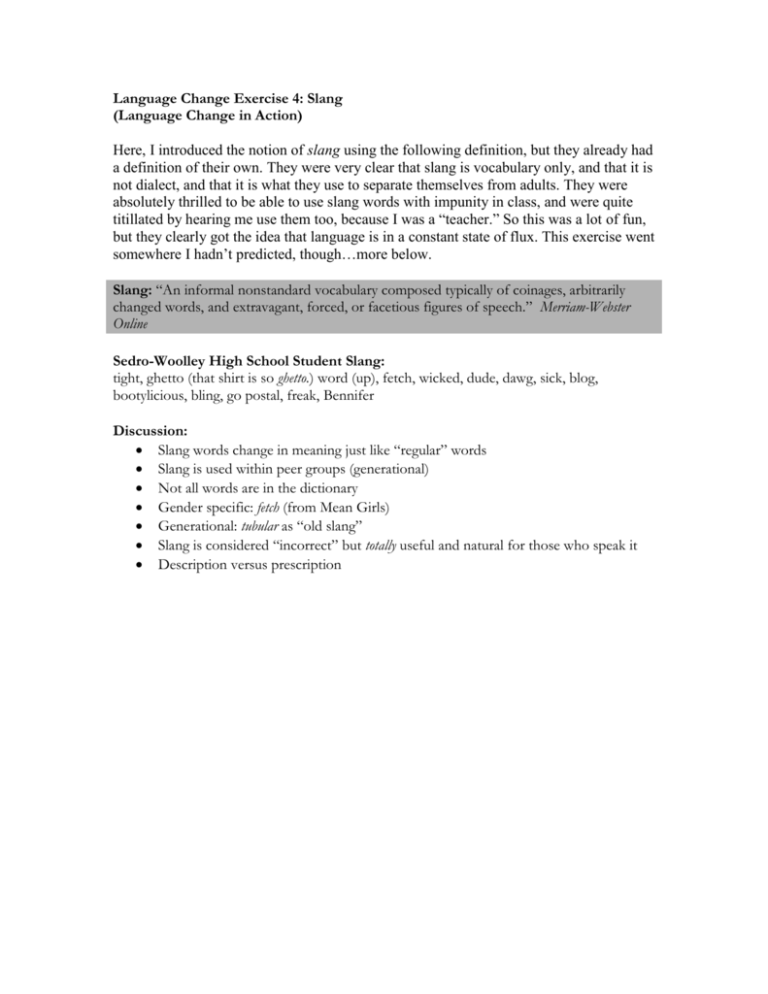
Language Change Exercise 4: Slang (Language Change in Action) Here, I introduced the notion of slang using the following definition, but they already had a definition of their own. They were very clear that slang is vocabulary only, and that it is not dialect, and that it is what they use to separate themselves from adults. They were absolutely thrilled to be able to use slang words with impunity in class, and were quite titillated by hearing me use them too, because I was a “teacher.” So this was a lot of fun, but they clearly got the idea that language is in a constant state of flux. This exercise went somewhere I hadn’t predicted, though…more below. Slang: “An informal nonstandard vocabulary composed typically of coinages, arbitrarily changed words, and extravagant, forced, or facetious figures of speech.” Merriam-Webster Online Sedro-Woolley High School Student Slang: tight, ghetto (that shirt is so ghetto.) word (up), fetch, wicked, dude, dawg, sick, blog, bootylicious, bling, go postal, freak, Bennifer Discussion: Slang words change in meaning just like “regular” words Slang is used within peer groups (generational) Not all words are in the dictionary Gender specific: fetch (from Mean Girls) Generational: tubular as “old slang” Slang is considered “incorrect” but totally useful and natural for those who speak it Description versus prescription
